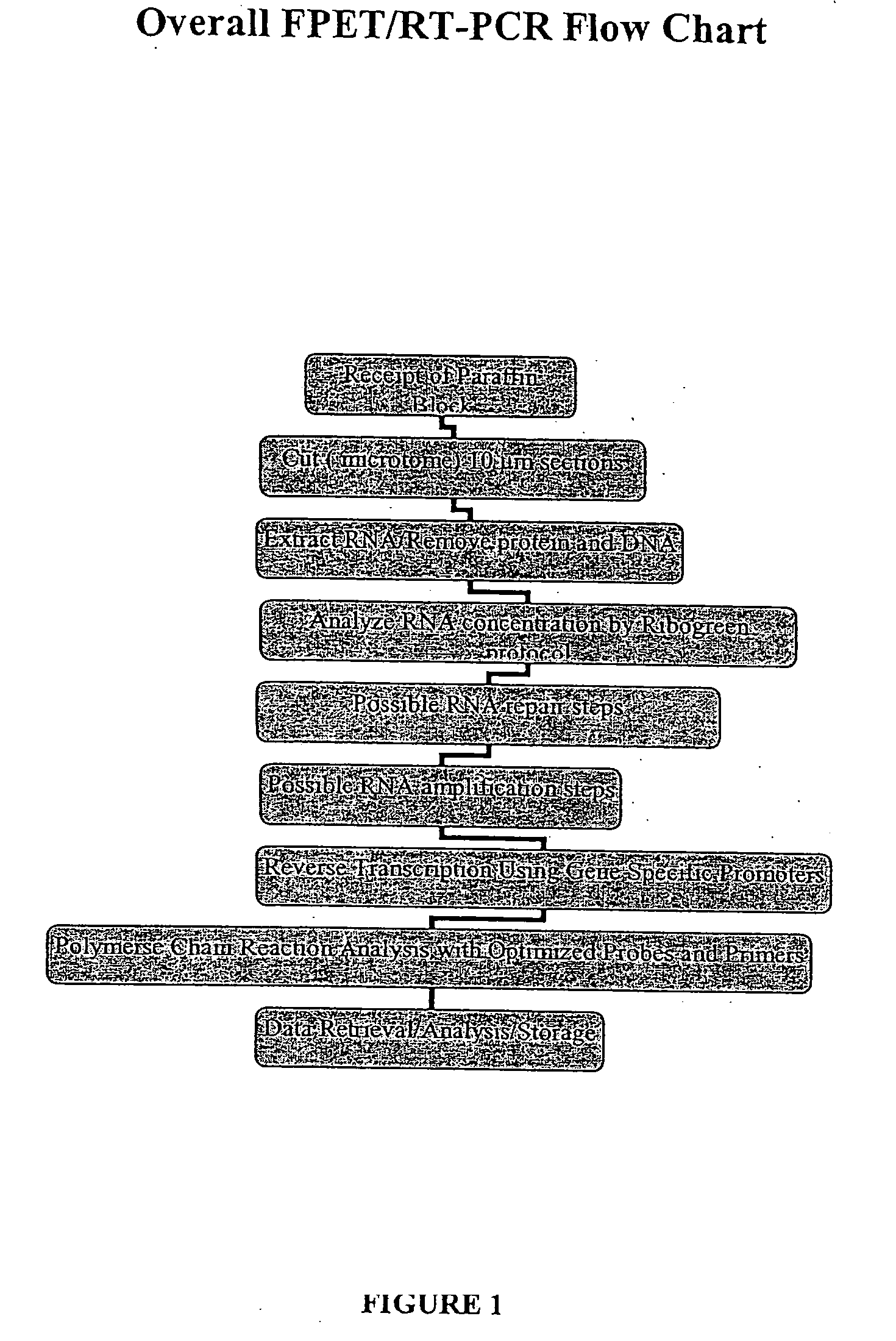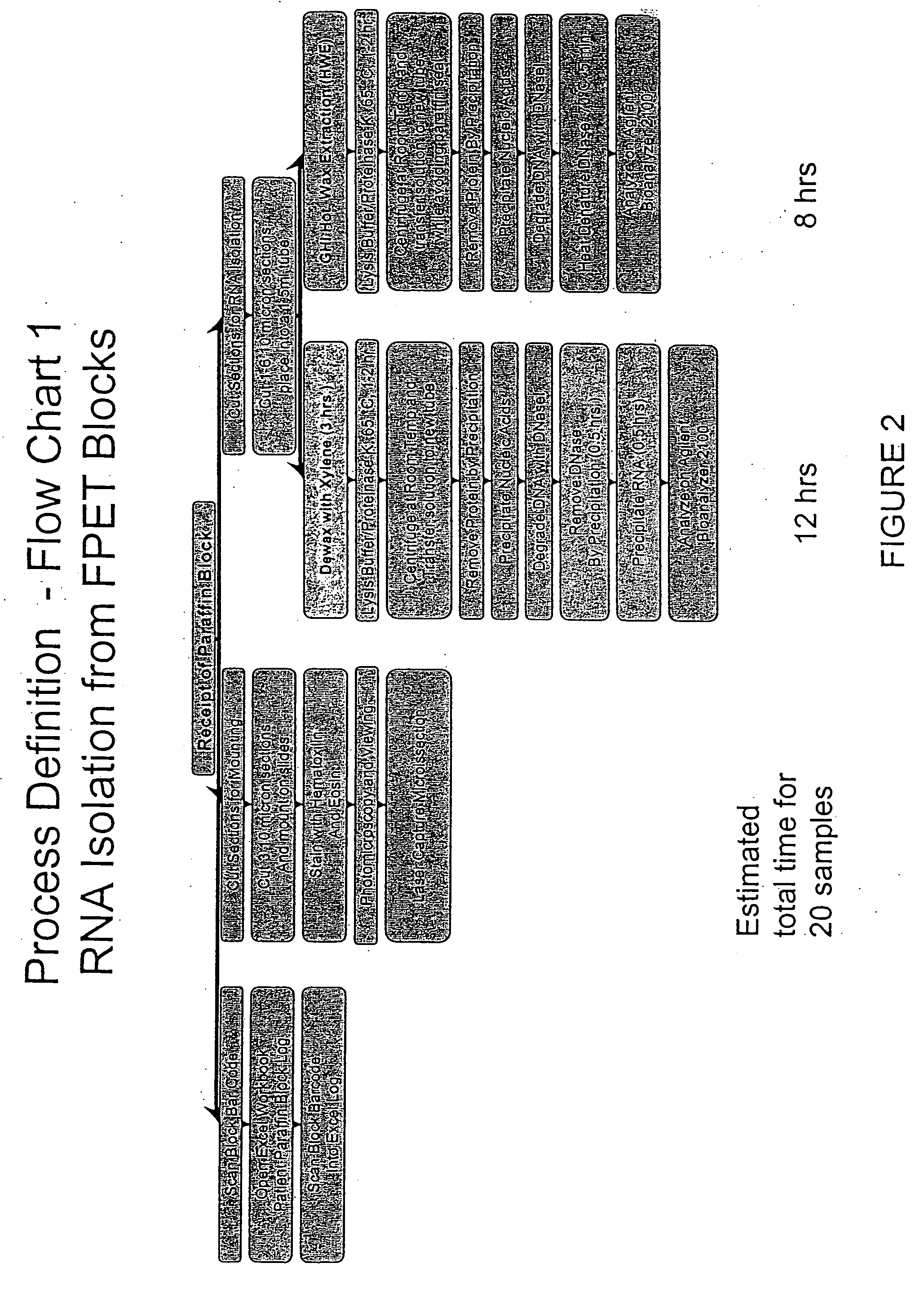Gene expression profiling of EGFR positive cancer
a gene expression and cancer technology, applied in the field of gene expression profiling of tissue samples obtained from egfrpositive cancer, can solve the problems of not capture the potential value of knowing relationships, diagnostic tests are often not quantitative, and rna-based tests are not often used
- Summary
- Abstract
- Description
- Claims
- Application Information
AI Technical Summary
Benefits of technology
Problems solved by technology
Method used
Image
Examples
example 1
[0108] A Phase II Study of Gene Expression in Head and Neck Tumors
[0109] A gene expression study was designed and conducted with the primary goal to molecularly characterize gene expression in paraffin-embedded, fixed tissue samples of head and neck cancer patients who responded or did not respond to treatment with an EGFR inhibitor. The results are based on the use of five different EGFR inhibitor drugs.
[0110] Study Design
[0111] Molecular assays were performed on paraffin-embedded, formalin-fixed head and neck tumor tissues obtained from 14 individual patients diagnosed with head and neck cancer. Patients were included in the study only if histopathologic assessment, performed as described in the Materials and Methods section, indicated adequate amounts of tumor tissue.
[0112] Materials and Methods
[0113] Each representative tumor block was characterized by standard histopathology for diagnosis, semi-quantitative assessment of amount of tumor, and tumor grade. A total of 6 secti...
example 2
[0124] A Phase II Study of Gene Expression in Colon Cancer
[0125] In a study analogous to the study of head and neck cancer patients described in Example 1, gene expression markers were sought that correlate with increased or decreased likelihood of colon cancer response to EGFR inhibitors. Sample preparation and handling and gene expression and data analysis were performed as in Example 1.
[0126] Twenty-three colon adenocarcinoma patients in all were studied, using a 192 gene assay. 188 of the 192 genes were expressed above the limit of detection. Both pathological and clinical responses were evaluated. Following treatment with EGFR inhibitor, three patients were determined to have had a partial response, five to have stable disease and fifteen to have progressive disease.
[0127] Table 3 shows the results obtained using the partial response criterion.
[0128] Results from analysis of colon cancer patient data using clinical benefit criteria are shown in Table 4.
[0129] Overall, incr...
PUM
| Property | Measurement | Unit |
|---|---|---|
| Temperature | aaaaa | aaaaa |
| Temperature | aaaaa | aaaaa |
| Current | aaaaa | aaaaa |
Abstract
Description
Claims
Application Information
 Login to View More
Login to View More - R&D
- Intellectual Property
- Life Sciences
- Materials
- Tech Scout
- Unparalleled Data Quality
- Higher Quality Content
- 60% Fewer Hallucinations
Browse by: Latest US Patents, China's latest patents, Technical Efficacy Thesaurus, Application Domain, Technology Topic, Popular Technical Reports.
© 2025 PatSnap. All rights reserved.Legal|Privacy policy|Modern Slavery Act Transparency Statement|Sitemap|About US| Contact US: help@patsnap.com


